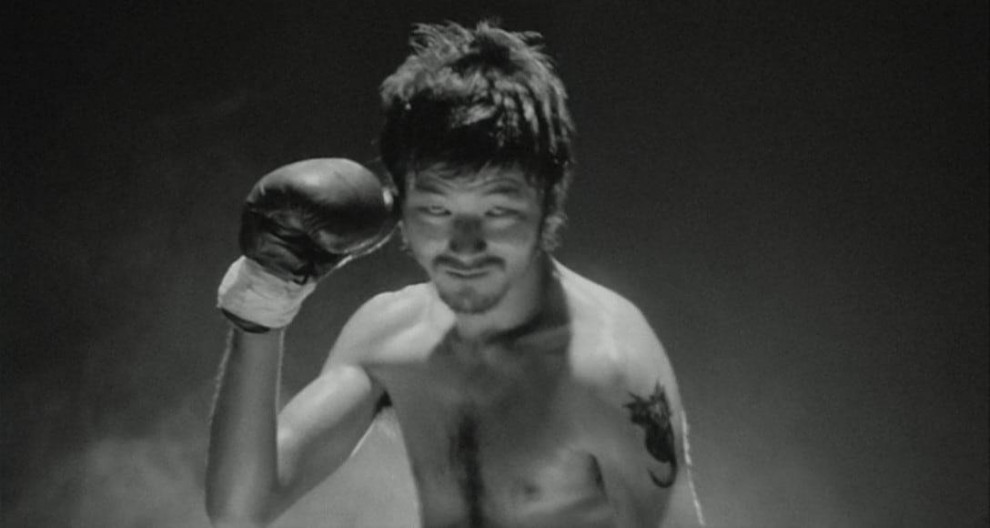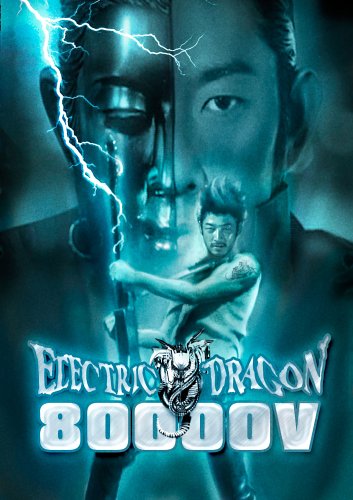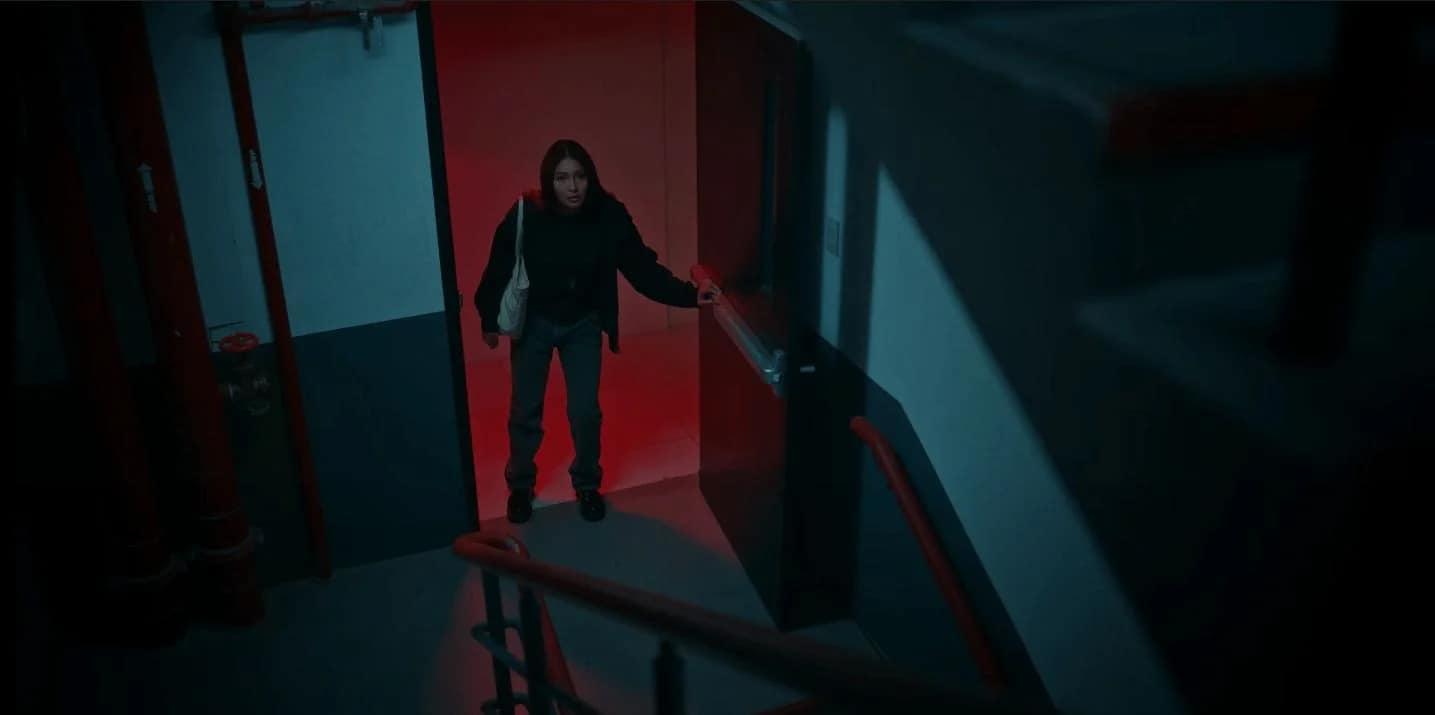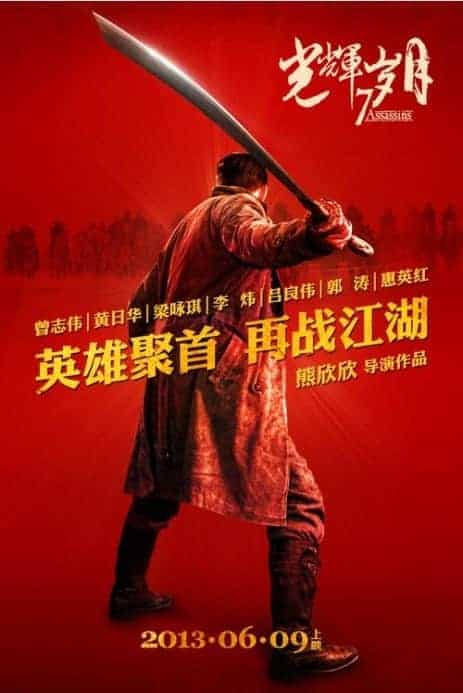A delinquent from birth, ‘Dragon Eye Morrison' has been subjected to electro-shock therapy to help quell his anger. However, the years of shock treatment have turned him into a living conductor. Unable to interact with society, Dragon Eye makes a living finding lost reptiles and has channeled his aggression through his electric guitar. Meanwhile, a vigilante named ‘Thunderbolt Buddha' having been gifted the same powers through a childhood accident, is set to challenge ‘Dragon Eye' to a duel.
Buy This Title
“Electric Dragon” can almost be summarized by listing off different things included in the film, since it takes various inspirations from everything to anime to punk, with an emphasis on taking the more ‘masculine' aspects of those mediums and presenting it at a rapid pace. Listing a few of the film's attributes; Tadanobu rocking out on the guitar, lizards, boxing, an over animated narrator screaming over bold text, large numbers signifying strength, bizarre electric gadgets, loud rock score, and a ‘final boss battle'. All these moments lead to a production that hits hard throughout the entire duration, oozing a machismo reminiscent of a young child just listing off things that are cool. For those in tune with Ishii, and enjoying the same kind of style and creative elements, “Electric Dragon” is a near perfect film in capturing the essence of stylized pop-culture worship.
The script is reflective of a fighting anime, in the sense you have the protagonist set to face an arch rival, with focus on building towards the final encounter. it is not to say the rest of the film lacks narrative substance, but it all seems to build to the final battle. It is also towards the end of this battle that we see the use of some practical effects. There is also the common trope of the hero being on the verge of defeat, only to find some deep power within to overcome his foe, in this case landing “250 punches to reach 20 million volts”. With the diversity of Ishii's script work, this certainly isn't the strongest narrative he presented. However, with a focus on style, the simplistic script does not need that added depth.

For those unfamiliar with the work of Ishii, it can be difficult to explain the visual appeal in his projects that become heavily focused on style. The camera work contains many sharp cuts, not really giving the viewer much of a chance to focus on what is going on, all the while still containing short meditative breaks that allow some detail to seep through. What may seem as disorganized, Ishii has proven that there is no mistake in what he wishes to accomplish with the visuals. The eclectic mix of camera work, effects, and time distortion demands full attention, making the film a special experience, that few other directors have been able to mimic.
Since the beginning of Ishii's career, most notably in the punk rock epic “Burst City”, his films have become synonymous with their scores, and “Electric Dragon” is no exception. The production is scored with loud guitar riffs,or catchy industrial beats. It is a joyous concoction that gives every scene a certain amount of cool swagger, making it one of the most notable soundtrack inspired by works of Ishii.
Tadanobu Asano is arguably the most successful and recognizable Japanese actor, having had roles in international productions, and starring in many critically acclaimed Japanese films. His success feels garnered in part by cult film fans, as his roles feature a great diversity in projects he will work on, with notable fan favorites. The frenetic nature of the production does not reflect the best of his abilities, but it is unarguable that casting him in the lead role was an ideal choice.

Director Sogo Ishii has always been one to fly under the radar, with a rather unfair comparison to Shinya Tsuakmoto. With both directors, helping shape the definition of ‘Cyber Punk' within Japanese film, Tsukamoto largely gets cited more often, which I have chalked down to the amount of metaphorical storytelling and need for deeper interpretation. However, Ishii's focus within the genre seems more geared towards style, making works like “Electric Dragon” a meditation on all things that are ‘cool' about the genre. Where Tsukamoto's work begs for contemplation and reflection, Ishii offers up a break-neck dive into stylized chaos in the genre. as an overarching opinion, I can best summarize Electric Dragon as ‘bad***' and it will be that way for decades to come, making it an ideal film to revisit.
















